
As the recognition of blockchain technology continues to rise universally, industries now want to experience the potential of this technology. An immense disruption has already been witnessed in the financial industry (fintech, as it is casually referred to), through the involvement of Blockchain. While its applications have now been firmly researched and evaluated, various industries, including software development, are indulging in this lucrative technology.
Since the majority of businesses are beginning to explore the proficiency of blockchain by building blockchain applications, the demand for the same is breaking the charts. Existing organizations are investing heavily, and a huge number of new players are stepping in.
Tech giants are so confident with the emergence of blockchain as the next big thing in technology, will it prove to be once in a century innovation?
Moreover, the surge in dApp development is a significant reason for the frequent rise in top blockchain platforms.
Now, the major question is…
What is a blockchain platform?
In simple terms, blockchain platforms facilitate the development of blockchain-based applications.
Imagine you wish to create a cryptocurrency trading app. There will be a whole lot of backend complexities, legal bounds, and other blockchain-related developments that will make the process 5x lengthier. Here comes the significance of blockchain platforms, they assist you in doing things that you should not do from scratch. After all, why should you redo a complex implementation that has already been done?
Now, the blockchain platforms can either be permissioned or permissionless. Well-known players like Ethereum, Hyperledger, R3, Ripple, and EOS are a few platforms that offer blockchain frameworks, allowing creators to develop and host applications on the blockchain.
Let’s now quickly move on to the best blockchain development platforms. The judgment has been made keeping in mind a variety of parameters:
- Services offered
- Accessibility
- Integrity
- Flexibility
- Popularity
- Smart Contract functionality
- Scalability
Key Market Takeaways of Blockchain Technology
The global blockchain technology market is experiencing explosive growth. In 2023, it was valued at a staggering USD 17.57 billion. This figure is projected to surge to USD 27.84 billion in 2024 and continue its meteoric rise, reaching a projected value of USD 825.93 billion by 2032. This translates to a compound annual growth rate (CAGR) of a remarkable 52.8% over the forecast period (2024-2032).
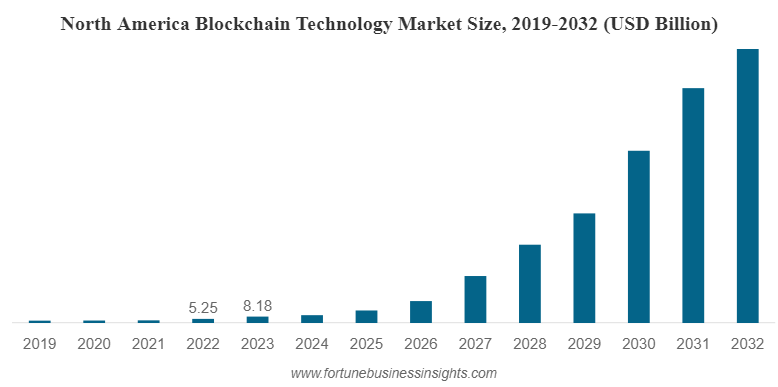
This market growth encompasses a wide range of technology platforms, solutions, and services. It includes offerings like Wipro’s distributed ledger blockchain solutions, which encompass ecosystem services advisory, consulting services, platform services, and application services. Additionally, the market incorporates products and services like Microsoft’s Azure service and Azure digital ledger workbench.
Top Advantages of Using Blockchain Platforms
Blockchain technology has stormed the tech world, promising a revolution in data security, transparency, and efficiency. But with numerous blockchain platforms emerging, it’s crucial to understand the distinct advantages they offer. Buckle up, as we delve into the reasons why blockchain platforms are poised to transform various industries.
1. Enhanced Security:
Imagine a digital fortress guarding your transactions. Blockchain platforms achieve this by employing cryptography, where data is encrypted into unbreakable codes. Any attempt to tamper with information leaves a permanent mark, making it virtually impossible to forge or alter records. This translates to a significant reduction in fraud and errors, fostering a secure environment for all participants.
2. Transparency Unchained: Trust Built on Blocks
Gone are the days of blindly trusting intermediaries. Blockchain platforms operate on a distributed ledger, a shared record accessible to all authorized users. This fosters complete transparency, as every transaction is meticulously documented and visible to relevant parties. This not only builds trust but also streamlines audits and eliminates discrepancies.
3. Streamlined Processes: Slashing Costs and Delays
Blockchain platforms act as well-oiled machines, automating processes and eliminating the need for middlemen. This translates to significant cost savings and faster transaction times. For instance, in supply chain management, real-time tracking of goods reduces administrative burdens and expedites deliveries.
4. Fraud Prevention:
Once information is stored on the blockchain, its immutability makes it nearly impossible to misuse or alter. This inherent feature of blockchain technology ensures a robust defense against fraudulent activities. Traditional systems can be vulnerable to manipulation, but blockchain’s tamper-proof ledger creates an audit trail that exposes any attempt to commit fraud. This fosters trust and strengthens the integrity of data within the network.
5. Enhanced Productivity: Supercharging Workflows
Blockchain platforms act as a catalyst for enhanced productivity. By streamlining processes and eliminating intermediaries, businesses can achieve significant efficiency gains. Imagine a world where approvals happen instantly, communication is flawless, and data exchange is frictionless. This is the reality that blockchain platforms enable. Furthermore, smart contracts and self-executing agreements stored on the blockchain automate manual tasks and eliminate human error, freeing up valuable resources and boosting overall productivity.
6. Empowering Users: Taking Control of Your Data
Traditionally, data resided in silos controlled by corporations. Blockchain platforms disrupt this model by empowering users. You own and control your data, granting access only to authorized parties. This fosters greater privacy and puts you in the driver’s seat when it comes to managing your digital assets.
7. Fostering Innovation: A Launchpad for New Ideas
Blockchain platforms are a breeding ground for innovation. They provide a secure and transparent infrastructure for developers to build groundbreaking applications. From secure voting systems to decentralized marketplaces, the possibilities are endless. This continuous innovation paves the way for a more secure and efficient future.
A Look at Key Blockchain Platforms
As listed below, there are four types of blockchain platforms:
1. Public Blockchain
One of the most frequent forms of blockchain networks is the public blockchain. Anyone with a stable internet connection may connect to the network and begin confirming the blocks.
The most well-known example of a public blockchain network is Bitcoin. Anyone may access, read, write, and participate in the network.
2. Private Blockchain
A permissioned blockchain is another name for a private blockchain.
It is, as the name implies, a distributed ledger that no one can access. It is only available to those who have been granted authorization. A user can only do actions that have been properly authorized by the ledger administrator.
Similarly, in order to access the blockchain, the user must show a digital certificate or utilize another kind of digital verification.
The most well-known examples of private blockchain networks are Ripple (XRP) and Hyperledger.
3. Consortium Blockchain
Because more than one entity maintains the blockchain network in consortium blockchain, it is called semi-decentralized.
Simply said, consortium blockchain networks allow businesses to exchange information while also verifying the validity of transactions. Banks, governments, and organizations are the primary users of networks like a blockchain network.
The Energy Web Foundation and IBM Food Trust are two major instances of consortium blockchain.
4. Hybrid Blockchain
A hybrid blockchain is one that combines public and private blockchains. This network may be used by the business to establish restrictions over individuals and the data they have access to. In some circumstances, a company can make specific information public, while others must remain secret and accessible only to authorized people.
Also read: How to create a crypto wallet app?
Top Blockchain platforms
#1 Ethereum
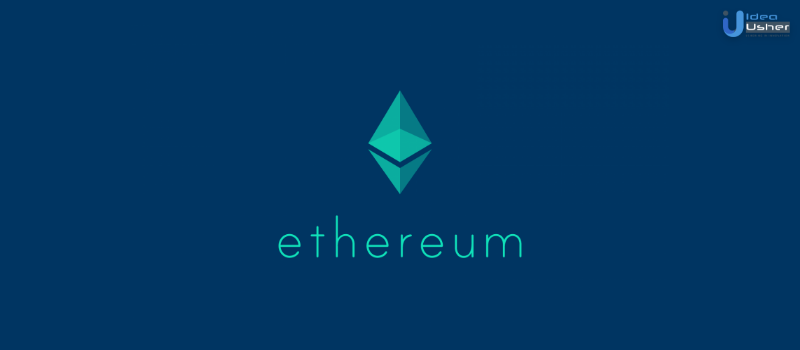
A popularly known blockchain services platform, Ethereum has conceived several repercussions in the market. Additionally, it is one of the best blockchain facilities to utilize in 2024. Who would not want to use a terrific open-source platform to run smart contracts (on the custom-built blockchain network)?
Additionally, there is no doubt that Ethereum is the best platform to assist developers in creating dApps(decentralized applications) and democratic autonomous organizations (DAOs). Ethereum serves secure smart contracts, cryptocurrency trading, and much more.
Overall, Ethereum will eventually become developers’ favorite industry-leading blockchain platform for building enterprise-grade apps.
| Programmed Languages: Python, Go, C++ |
| Consensus Type: PoW (Proof of Work) |
| Network Type: Smart Contract and Public |
| Payment Method: Ether for computational and transactional services |
#2 Hyperledger Fabric

Hyperledger Fabric is the handiest blockchain platform that helps you to build blockchain programs on a modular structure. Alternatively, this platform furnishes diverse technological advances that are decisive for smart software development for industries including finance, supply chain, production, and so on.
Undoubtedly, it is the most effective platform for both decentralized hosting and decentralized application storage with the capability of a smart contract. Moreover, the Hyperledger Fabric blockchain platform is mainly designed for permitted networks, which enables contributors inside the community to participate in the blockchain. Isn’t it incredible?
| Network Type: Permissioned |
| Payment Method: Open Source |
| Programmed Language: Python |
| Consensus Type: Pluggable Framework |
#3 EOS

EOS is an open-source network based on the idea of decentralized technology. It originally offers the capability for the end-user to carry out numerous activities on the EOS platform. Overall, EOS provides basic services without any fee, hence users can avail of all of the advantages of a dApp based on EOS.
| Network Type: Permissioned |
| Payment Method: Open source |
| Programmed Language: C++ |
| Consensus Type: Delegated Proof-of-Stake |
#4 Ripple
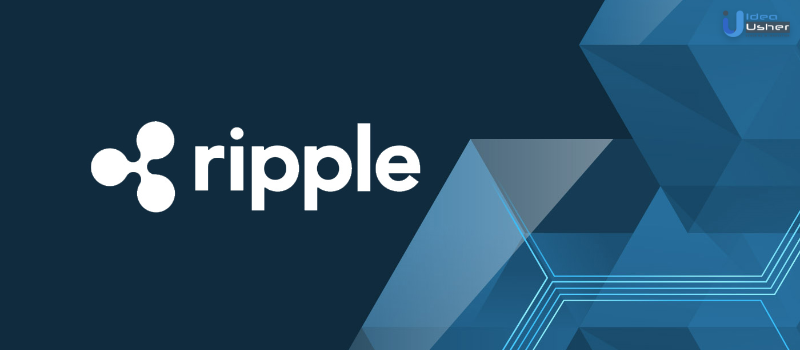
The ripple blockchain platform is a perfect blend for cross-border payment services. Additionally, it is one of the most popular platforms among payment provider organizations, banks, and communities. Ripple facilitates banks to transact directly across national borders.
Ripple is probably the best blockchain platform for both big businesses and individual users. Effortless cross-border payments feature allows it to lead the payments domain.
| Network Type: Permissioned |
| Payment Method: Open Source and Free |
| Programmed Language: Python |
| Consensus Type: Probabilistic Voting |
#5 Stellar
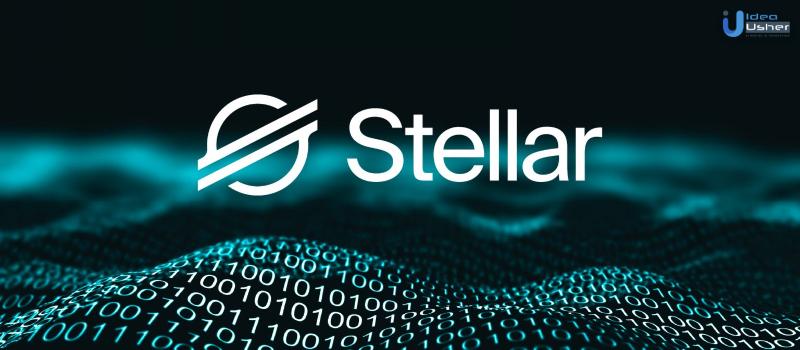
Stellar, necessarily a dispersed ledger blockchain network offers quick and economical cross-border payment services to organizations and individuals. Additionally, by accessing the stellar blockchain platform, developers can build mobile wallets and intelligent banking apps like Paypal using
| Network Type: Public/Private |
| Payment Method: Open Source |
| Programmed Language: JavaScript, Java |
| Consensus Type: Stellar Consensus Protocol |
#6 R3 Corda
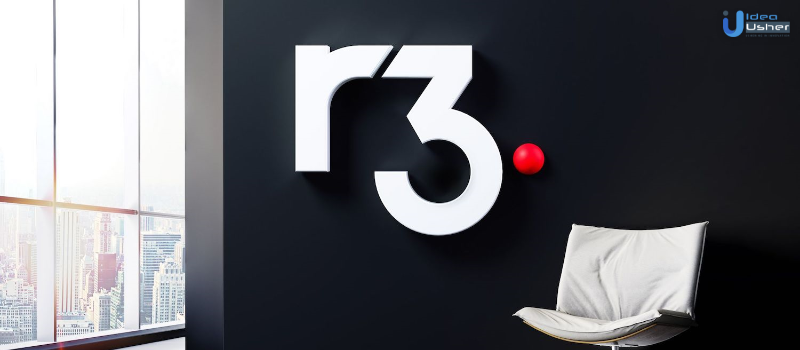
R3 Corda is another open-source distributed ledger blockchain platform. It essentially lets businesses directly transact smart contracts. Interestingly, R3 Corda runs on the permitted network which further allows authorized users only to access certain information (not the entire network).
| Network Type: Permissioned |
| Payment Method: Open Source |
| Programmed Languages: C++ and JavaScript |
| Consensus Type: Pluggable Framework |
#7. NEO
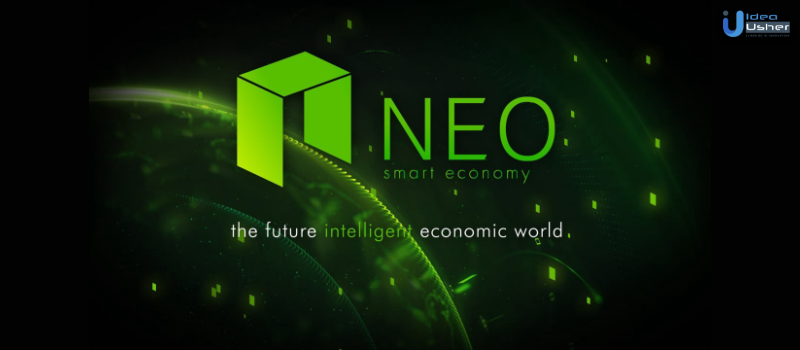
The Neo blockchain platform utilizes blockchain smart contracts to handle e-assets. Additionally, NEO also serves the P2P exchange of currencies and digital assets without the involvement of any third party.
- The Neo blockchain platform has a personally owned currency called “Neo”.
- This allows you to pay transaction fees on the Neo network so that you can run your app.
- The Neo infrastructure manipulates several forms of digital assets. So you can also use digital certificates to securely launch your application on the Neo network.
| Network Type: Permissioned |
| Payment Method: Open Source |
| Programmed Languages: C#, Java, Python |
| Consensus Type: Delegated Byzantine Fault Tolerance |
#8 OpenChain
OpenChain is a fantastic and secured open-source distributed ledger blockchain network by Coinprism, which is efficient for businesses wanting to preserve and deserve their digital assets.
Additionally, with the P2P network and online asset exchange, it is worth referring to this as one of the top blockchain platforms.
| Network Type: Private Network |
| Payment Method: Open Source and Free Pricing |
| Programmed Languages: JavaScript |
| Consensus Type: Partionned Consensus |
#9 Multichain
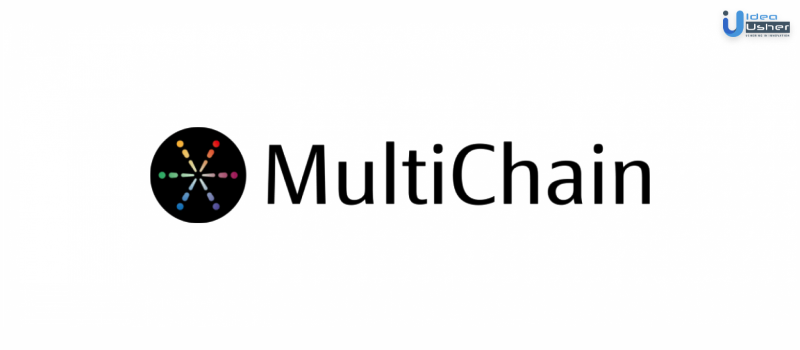
Multichain is another significant blockchain platform that can be the best choice for the quick deployment of distributed ledger applications. Moreover, in competence with other blockchain networks, Multichain offers better performance and easy scaling.
The prime benefit of this MultiChain technology platform is:
- No need to learn an unknown programming language to create smart contracts
- Easy software solutions and application deployment.
| Network Type: Permissioned |
| Payment Method: Free and Open Source |
| Programmed Languages: C#,C++, Python, JavaScript |
| Consensus Type: Probabilistic Voting |
#10. Quorum
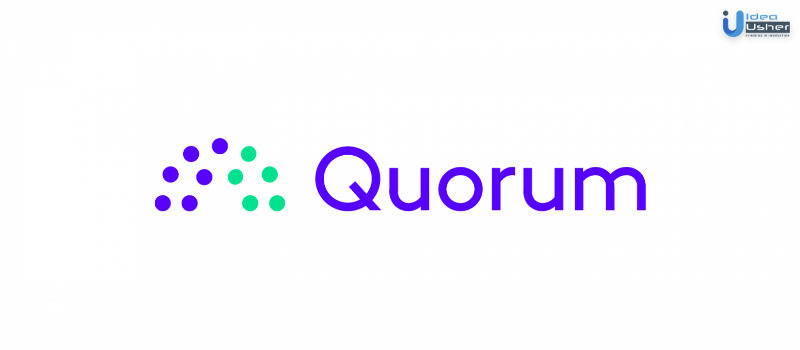
Quorum is backed by one of the leading technological companies: JP Morgan. This blockchain platform is the ideal solution for enterprises and financial markets. Quorum turns your finances private through cryptography and further through its distributed transaction ledger system. Additionally, Quorum has received significant backing from the developers’ community, thanks to its high-class security.
| Network Type: Permissioned |
| Payment Method: Open Source |
| Programmed Language: Python |
| Consensus Type: Majority Voting |
Also read: Dapps for Blockchain
How to Select a Blockchain Platform for Your Business?
In today’s rapidly evolving technological landscape, blockchain has emerged as a game-changer across industries. Its ability to ensure secure, transparent, and efficient data management holds immense potential for businesses of all sizes. However, with numerous blockchain platforms available, choosing the right one can feel overwhelming. Fear not! This guide will equip you with the knowledge to navigate the selection process and find the perfect platform to propel your business forward.
1. Define Your Business Needs:
The first step is to clearly identify the specific problems your business aims to solve through blockchain technology. Ask yourself:
- What processes can be streamlined? (Supply chain management, data tracking, payments)
- What level of privacy and security is required? (Public vs. private blockchain)
- Who are the stakeholders involved? (Internal teams, external partners)
- What is your scalability roadmap? (Future growth plans)
2. Explore Different Platform Types:
Once you understand your needs, delve into the different blockchain platform types:
- Public Blockchains: Open, permissionless networks like Ethereum offer transparency and decentralization but may lack scalability and privacy.
- Private Blockchains: Permissioned networks like Hyperledger Fabric offer greater control and faster transaction speeds but are less transparent.
- Consortium Blockchains: Collaborative networks managed by multiple entities provide a balance between control and transparency, ideal for specific industry use cases.
- Hybrid Blockchains: A blend of public and private elements offering tailored security and privacy based on your needs.
3. Evaluate Platform Features and Functionality:
Each platform offers a unique set of features. Consider factors like:
- Scalability: Can the platform handle your current and future transaction volume?
- Security: Does the platform offer robust security mechanisms to protect sensitive data?
- Interoperability: Can the platform interact with other blockchain networks or existing systems?
- Development Tools and Resources: Does the platform offer a developer-friendly environment with readily available resources?
- Community and Support: Is there a vibrant developer community and active support system available?
4. Research Existing Solutions and Case Studies:
Look for successful implementations of blockchain technology in your industry. Studying these case studies can offer valuable insights and help you identify a platform that aligns with your goals.
5. Consider the Cost Factor:
Blockchain platform costs can vary depending on factors like the deployment model (cloud, on-premise), transaction fees, and required development resources. Determine your budget and choose a platform that offers cost-effectiveness alongside functionality.
6. Partner with a Blockchain Development Expert: Here’s How Idea Usher Can Help
Selecting the right platform can be a complex task. Consider partnering with a blockchain development expert like Idea Usher. We can be your one-stop shop for navigating the blockchain landscape. Here’s how Idea Usher can specifically assist you:
- Needs Assessment and Platform Recommendation: Our team will work closely with you to understand your business objectives and recommend the most suitable blockchain platform based on your specific requirements.
- Custom Development Expertise: Our skilled blockchain developers have experience building innovative solutions across various industries. We can tailor a blockchain solution that seamlessly integrates with your existing infrastructure.
- End-to-End Project Management: We’ll manage your blockchain project from ideation to implementation, ensuring smooth execution and timely delivery.
- Ongoing Support and Maintenance: We offer ongoing support and maintenance to ensure your blockchain solution operates optimally and evolves alongside your business needs.
By leveraging Idea Usher’s expertise, you gain a valuable partner throughout the blockchain journey. We’ll guide you through platform selection, development, and implementation, empowering you to unlock the transformative potential of blockchain technology for your business.
Wrapping up
Until now, we firmly hope you have gained core information surrounding the top 10 most popular blockchain development platforms. If you are looking to start a blockchain application and are still unsure about who to consult with, you are at the right place. Idea Usher has helped numerous blockchain-based businesses establish top-quality digital products in the market. We deliver the best solutions for all app development requirements. Contact us here for a free consultation.
FAQs:
Q. What is a blockchain platform?
A blockchain platform is a software framework that facilitates the development of decentralized applications (dApps) built on blockchain technology. These platforms offer tools and resources to help developers create, deploy, and manage their blockchain-based applications.
Q: What is the future of blockchain in 2025?
A: The future of blockchain in 2025 looks bright! Here are some potential trends:
- Wider Adoption: We can expect broader adoption across various industries, with blockchain technology streamlining processes like supply chain management, secure voting systems, and digital identity verification.
- Increased Scalability: Scalability improvements will address current limitations, allowing for faster transaction processing and handling larger volumes of data on blockchain platforms.
- Regulatory Clarity: Regulatory frameworks for blockchain are likely to evolve, providing greater clarity and fostering innovation within legal boundaries.
- Integration with Existing Systems: Seamless integration of blockchain with existing IT infrastructure will become more commonplace, enabling a smoother transition for businesses.
- Rise of New Applications: Expect the emergence of exciting new applications built on blockchain, pushing the boundaries of what’s possible in areas like decentralized finance (DeFi) and the Internet of Things (IoT).
Q: Which blockchain platform is best?
A: Unfortunately, there’s no single “best” blockchain platform. The ideal platform depends entirely on your specific needs and goals. Here are some factors to consider:
- Your Business Needs: What problem are you trying to solve with blockchain? Different platforms cater to different use cases.
- Public vs. Private: Do you need a transparent public network or a permissioned private network with more control?
- Scalability: Can the platform handle your current and future transaction volume?
- Security: Does the platform offer robust security features to protect your data?
- Community and Support: Is there a vibrant developer community and active support system available?
By carefully evaluating these factors and researching existing solutions in your industry, you can make an informed decision about the most suitable blockchain platform for your needs.
Q. Is it too late to invest in blockchain technology?
Blockchain technology is still in its early stages of development, with immense potential for growth across various industries. While some early opportunities might have passed, there’s still plenty of room for innovation and investment.
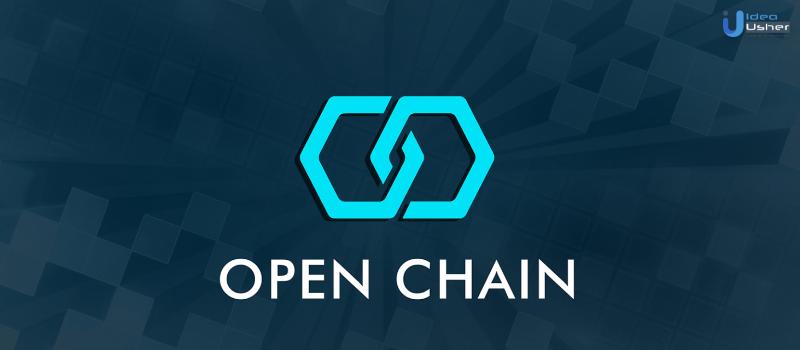













Vivek Badani